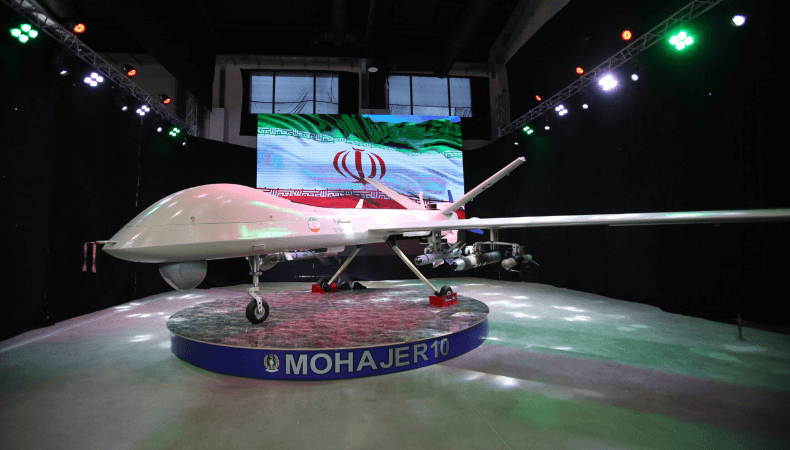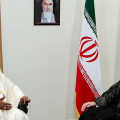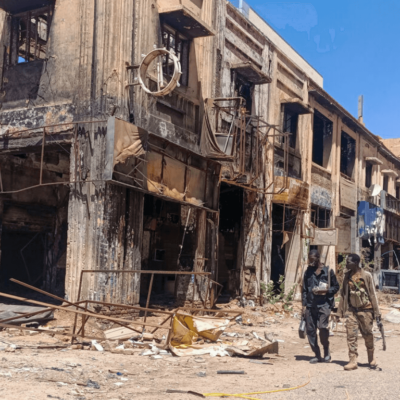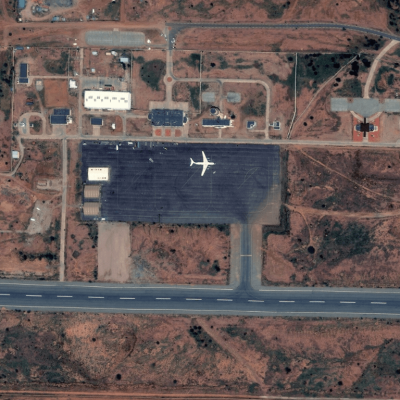How Iran’s Combat Drones Could Tip the Scales of Sudan’s Civil War

Sudan’s army has reportedly received combat drones from Iran, a move that could escalate the civil war in the African country and signal a growing Iranian influence in the region.
The drones are said to be the Mohajer-6, a medium-altitude long-endurance unmanned aerial vehicle (UAV) that can carry precision-guided munitions and conduct surveillance and reconnaissance missions.
The Features and Functions of the Mohajer-6
The Mohajer-6 is the latest and most advanced model of the Mohajer series of drones, which Iran has been developing since the 1980s. The Mohajer-6 has a wingspan of 10.5 meters, a length of 4.7 meters, and a height of 1.5 meters. It can fly at a maximum speed of 200 kilometers per hour, a maximum altitude of 5,000 meters, and a maximum range of 2,000 kilometers. It can stay in the air for up to 12 hours.
The Mohajer-6 can carry up to four Qaem smart bombs, each weighing 35 kilograms and having a circular error of less than one meter. The Qaem bombs are equipped with infrared and laser guidance systems, and can hit both stationary and moving targets. The Mohajer-6 can also carry cameras, radars, and electronic warfare devices, making it capable of performing various tasks, such as intelligence gathering, target acquisition, battle damage assessment, and jamming enemy communications.
The Implications and Challenges of the Drone Delivery
The delivery of the Mohajer-6 drones to Sudan’s army could have significant implications for the ongoing civil war in the country, as well as for the regional dynamics and security. The drones could give Sudan’s army an edge over the rival Rapid Support Forces (RSF), which have been advancing on the capital Khartoum and other strategic cities. The drones could also pose a threat to neighboring countries, such as Egypt, Ethiopia, and Eritrea, which have interests and stakes in Sudan’s stability and Nile water resources.
However, the drone delivery also poses some challenges and risks for both Sudan and Iran. The drones require the presence of advisors and technicians on the ground in Sudan, whether from Iran or its affiliated militias, to operate and maintain them. This could expose them to attacks from the RSF or other hostile forces, as well as to international sanctions and scrutiny.
Keep Reading
Moreover, the drone delivery could provoke a backlash from Sudan’s public and civil society, which have been protesting against the military coup and demanding a return to civilian rule. The drone delivery could also trigger a counter-reaction from Iran’s rivals, such as Saudi Arabia, the United Arab Emirates, and Israel, which could increase their support and intervention in Sudan.
The Comparison and Contrast with Other Countries
The drone delivery to Sudan is not the first time that Iran has supplied its allies and proxies with drones in the region. Iran has also sent drones to Syria, Lebanon, Iraq, and Yemen, where they have been used for various purposes, such as attacking enemy positions, targeting commercial vessels, and conducting espionage. Iran has also shared its drone technology and know-how with these countries, enabling them to produce their own drones or modify the Iranian ones.
However, there are also some differences and nuances between drone delivery to Sudan and other countries. For one thing, Sudan is not a traditional ally or proxy of Iran, but rather a former partner that severed its ties with Tehran in 2015 under pressure from Saudi Arabia and other Arab states. Sudan’s current military leadership, led by General Abdel Fattah al-Burhan, has also sought to improve its relations with the West and the Gulf countries, as well as to normalize its ties with Israel.
Therefore, the drone delivery to Sudan could be seen as an attempt by Iran to regain its influence and foothold in the country, as well as to challenge its adversaries in the Red Sea and the Horn of Africa.
For another thing, Sudan is not a war-torn or failed state like Syria, Iraq, or Yemen, but rather a transitional and fragile state that is undergoing a political and social crisis. Therefore, the drone delivery to Sudan could have more profound and unpredictable consequences for the country’s future and stability, as well as for regional peace and security.







